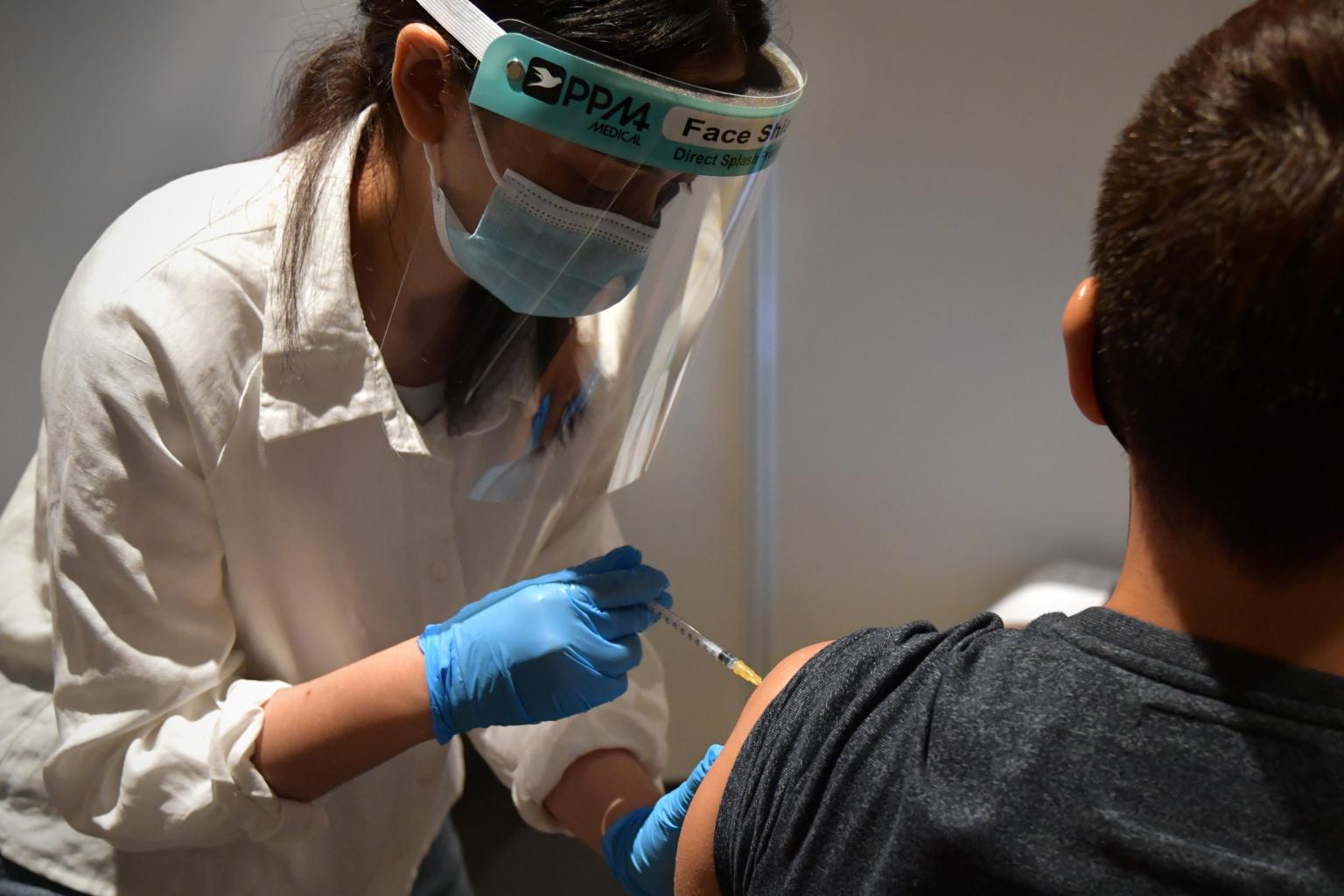Wanted: A next-gen jab to protect against all Covid-19 variants
Sign up now: Get ST's newsletters delivered to your inbox

The vaccines in use today requires boosters to maintain their effectiveness.
PHOTO: ST FILE
SINGAPORE - What the world needs now is a second-generation vaccine against Covid-19 that will give longer and better protection.
The most important thing is to prevent severe illness and deaths, said Sir Peter Piot, special adviser on Covid-19 to the president of the European Union and a visiting professor at the National University of Singapore Yong Loo Lin School of Medicine.
While Omicron might be milder than earlier Covid-19 variants, it is still killing people. What is happening in Hong Kong shows how serious it can be for people who are not vaccinated, Professor Piot said.
After doing well in the first two years of the pandemic, Hong Kong had struggled with more than 200 deaths a day for much of March as a high proportion of seniors there remain unvaccinated.
The vaccines in use today require boosters to maintain their effectiveness.
Said Prof Piot: "We know what the basic mechanisms are. I'm optimistic it's possible to develop a vaccine that is better at preventing deaths and severe disease. Preventing transmission, I'm not so sure. That's going to be much tougher."
But it is not impossible, he said, and already, several companies and academics are working on a combination of nasal spray and classic vaccine given together.
There is already a nasal spray against influenza that triggers immunity in the lining of the mouth, nose, eyelids, windpipe and lungs. That could prevent or reduce infection.
Ideally, it would be "a pan-coronavirus vaccine that protects against all variants known and emerging in the future", said Prof Piot, who has stepped down as the director of the London School of Hygiene and Tropical Medicine, but remains a professor there.
"While viruses generally get milder, a nasty variant might crop up. I don't think anybody can tell," he said.
Influenza, which has been around a long time, still sees more virulent strains surfacing. The Hong Kong flu in 1968-69 infected 3.5 billion people and killed between one million and four million people.
Meanwhile, there are still billions of people who remain unvaccinated against Covid-19.
Prof Piot said the problem is no longer the lack of vaccines, but getting the vaccines to people in a timely manner.
Even countries in Africa, where the vaccination rate remains low, are throwing away expired vaccines because they have difficulty getting the shots into arms.
Turning to China, where Covid-19 deaths are rising, Prof Piot said that with how fast Omicron spreads, Beijing's zero-Covid-19 goal is no longer possible.
China faces a few issues, such as low vaccination rates and vaccines that offer less protection than originally believed. Prof Piot is confident that the country will soon produce better vaccines.
But China is also a victim of its ability to keep deaths low over the past couple of years. This has resulted in people who are less motivated to get vaccinated.
Prof Piot said this is so different from Europe, where "everyone knows someone who has died from Covid-19". "That's quite a powerful incentive to get vaccinated."
Although some countries in Europe have dropped all measures against Covid-19, the pandemic is far from over, he said, adding that the EU is now buying vaccines to provide booster shots as the coming winter will likely result in a surge in cases.
Looking back at how the world has coped over the past two years, Prof Piot said the pandemic has brought some good.
For example, "science has delivered on vaccines and, to a lesser degree, on treatment". "There is still no vaccine for HIV after four decades," he added.
"There has been unprecedented international collaboration, from public and private sectors, that has made a huge impact and saved millions of lives."
Solidarity in the EU has been strengthened, through its ability to procure vaccines and to provide a uniform vaccine certificate.
Most countries had to go through difficult times, and the pandemic has been a test for community resilience and cohesion.
On the flip side, Prof Piot said: "Global response has been quite chaotic, with everybody doing their own thing.
"In Europe, the initial reaction was, we need all the masks et cetera. In the United States, mask wearing was politicised, so Democrats wore masks and Trump supporters didn't.
"Countries closed their borders unnecessarily, affecting the movement of essential goods, including diagnostic tests.
"Countries banned travel from South Africa when Omicron was discovered there, essentially punishing it for being alert and open about the discovery."
Prof Piot said his hope is that the world will continue to invest in preparedness against future infectious diseases, like Singapore has.
He added: "Singapore had one of the most rational responses that limited damage to lives, though there was economic damage."


